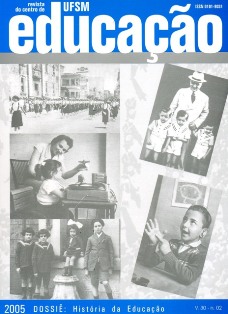The Pombaline Reform of secondary studies and its impact on the process of teacher professionalization
Keywords:
Teaching Profession Mistory, Pombalis Reform, Secondary Education.Abstract
This article analyses the impact of the Pombaline Reform on teacher professionalization process. Pombal’s reforming action on public education helped emerge a state educational system and create, simultaneously, the necessary conditions for its professionalization. Royal teachers of Latin Grammar, Greek, Rhetoric and Philosophy as well as teachers of reading, writing and arithmetic constituted the first two groups of teachers who were selected, hired, paid and controlled by the State. Within this perspective, what makes them a body of professionals is not a corporative understanding of their occupation, but the fact that they were controlled by the state. This work is informed by a socio-historical approach to the teaching profession (Nóvoa, 1987, 1991) aiming primarily at the first group of teachers. The paper focuses on two research questions: study fragmentation and teacher education.Downloads
How to Cite
Issue
Section
License
Declaration of originality
We declare that all articles present in the journal Educação (UFSM) are originals and were not submitted for publishing on any other publication, as a whole or a fraction. We also declare that, after being published by Educação (UFSM), a paper will not be submitted to another journal within two years. After this time, our journal transfers the publishing rights to the authors, with a permit granted by the Editorial Council.
We also acknowledge that the originals’ submission to Educação (UFSM) implies on a transference of copyright for physical and digital publishing to the journal. In case of noncompliance, the violator will receive sanctions and penalties predicted by the Brazilian Copyright Protection Law (n. 9610, dated 19/02/98).
Attribution 4.0 International (CC BY 4.0)
This license lets others remix, transform, and build upon the material for any purpose, even commercially, and copy and redistribute the material in any medium or format.

This work is licensed under a Creative Commons Attribution 4.0 International (CC BY 4.0)






